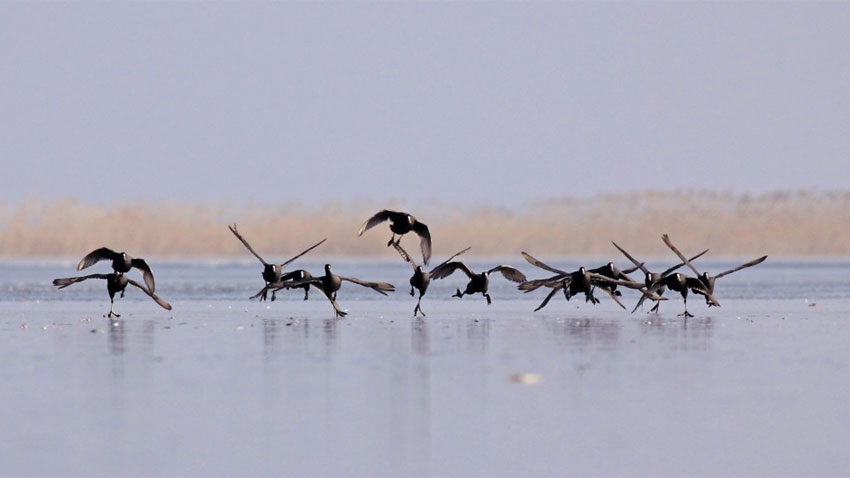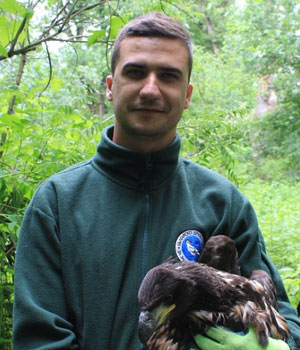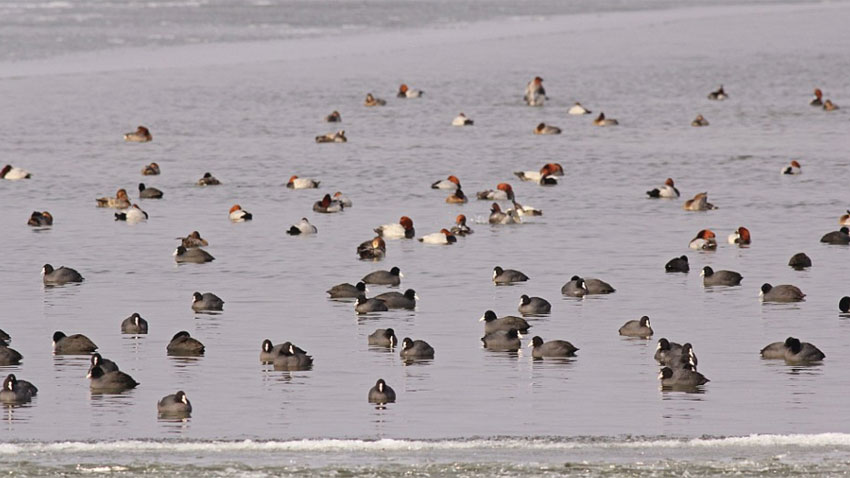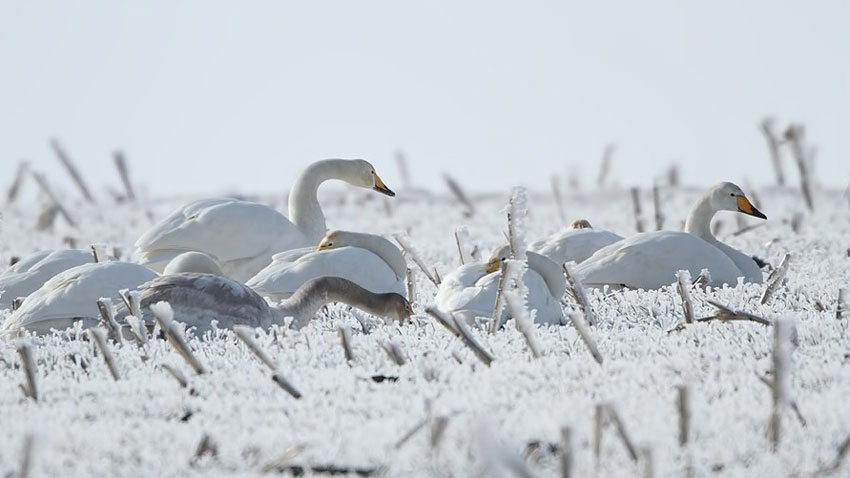The numbers of waterbirds in the world have been monitored since 1967. This census is deemed one of the most large-scale nature conservation events, with more than 15,000 people taking part. It is conducted simultaneously across the whole of Europe and North Africa, the aim being to count waterbirds with maximum accuracy. Internationally, the data are summarized by Wetlands International.

Many species of waterbirds opt to spend the winter in Bulgaria; some of them are on the endangered species list. The census provides a picture of the state of waterbird populations and the state their winter habitats are in, some of which have been includes in the Natura 2000 network of nature protection areas. The 41st mid-winter waterbird count was conducted in this country from 13 to 15 January by forty-one teams of experts and volunteers from the Bulgarian Society for the Protection of Birds, the Executive Environment Agency, the Regional Inspectorate of Environment and Water, hunting associations as well as representatives of NGOs.
Here is Svilen Cheshmedjiev, Bulgarian Society for the Protection of Birds coordinator of the census with more about the initiative:
 “Our teams and volunteers worked under very difficult conditions. We visited over 200 wetland zones, including along the banks of the Danube and the Black Sea coast, different dam lakes, fisheries, rivers. We counted significantly more waterbirds than any of the previous years. This is probably due to the very low temperatures in Northern Europe which pushed the birds from Central Europe towards Bulgaria. 80 percent of the data processed show that in mid-January there were 700,000 waterbirds spending the winter in this country. Near Bourgas, Shabla, Dourankoulak and Varna we counted 400,000 greater white-fronted geese (Anser albifrons) and around 44,000 red-breasted geese (Branta ruficollis). This is an endangered species which spends practically the entire winter in Bulgaria and we have a responsibility to protect them. Other interesting observations we made was of a large concentration of lesser white-fronted geese and one barnacle goose (Branta leucopsis). We have observations of the greater flamingo (Phoenicopterus roseus) in the Eastern Rhodopes as well as a record number of white-headed ducks (Oxyura leucocephala) at a location they are not usually found at – Rozov Kladenets dam lake,” Cheshmedjiev says.
“Our teams and volunteers worked under very difficult conditions. We visited over 200 wetland zones, including along the banks of the Danube and the Black Sea coast, different dam lakes, fisheries, rivers. We counted significantly more waterbirds than any of the previous years. This is probably due to the very low temperatures in Northern Europe which pushed the birds from Central Europe towards Bulgaria. 80 percent of the data processed show that in mid-January there were 700,000 waterbirds spending the winter in this country. Near Bourgas, Shabla, Dourankoulak and Varna we counted 400,000 greater white-fronted geese (Anser albifrons) and around 44,000 red-breasted geese (Branta ruficollis). This is an endangered species which spends practically the entire winter in Bulgaria and we have a responsibility to protect them. Other interesting observations we made was of a large concentration of lesser white-fronted geese and one barnacle goose (Branta leucopsis). We have observations of the greater flamingo (Phoenicopterus roseus) in the Eastern Rhodopes as well as a record number of white-headed ducks (Oxyura leucocephala) at a location they are not usually found at – Rozov Kladenets dam lake,” Cheshmedjiev says.

The more interesting species counted include Dalmatian pelicans (Pelecanus crispus), an endangered species which only nests in Bulgaria in Sreburna lake and on the island of Persin (a Bulgarian island in the Danube), sea eagles (Haliaeetus), tundra swans (Cygnus columbianus), horned grebes (Podiceps auritus), red-crested pochards (Netta rufina) and white-eyed pochards (Aythya nyroca), European shags (Phalacrocorax aristotelis) and many others. Many of the waterbirds included in this count are endangered or protected species on a world scale, that is why it is so important to know exactly how many of them there are, whether they are to be found in Bulgaria or elsewhere, as well as where they spend the winter because some of these wetlands are not protected and the birds could easily fall prey to hunters or poachers.

Looking into the state the birds spending the winter here are in is particularly important in view of climate change – a problem looming large everywhere in the world that concerns each and every one of us. Destitute birds or birds in an advanced state of exhaustion were found in a number of locations and this means they need to be provided with peace and quiet – a difficult task in these climatic conditions.
“The results can be interpreted as an index of the changes taking place in the environment and we must, once again focus our attention on the role played by birds as a vital indicator of the state of the environment we all live in,” says Svilen Cheshmedjiev.

English version: Milena Daynova
Photos: bspb.orgThe second edition of the unique Blackthorn Festival will be held today in the village of Salash near Belogradchik, northeastern Bulgaria. The event will begin on the square, where locals will offer sweets and jam from tart blackthorns collected in..
U.S. sanctions on NIS activated despite expectations of delay U.S. sanctions on Serbian oil company NIS – Naftna Industrija Srbije came into force on Thursday after being postponed eight times and despite expectations of yet another postponement,..
The Earth and Man National Museum in Sofia is hosting the 33rd Sofia Exhibition of Minerals, Gemstones and Fossils , the institution announced. The three-day event opens today and features companies and collectors of minerals and fossils, as well as..
Veliko Tarnovo is hosting the Urban Wine Fest, organised by the Bulgarian Association of Wine Professionals. "October is the month of Bulgarian wine and..
Sofia is hosting the finals of ER Champ 2025 — described by the organisers as the world’s largest international escape room competition . Taking place on..
More than 500 people from across Bulgaria are gathering today in the village of General Todorov, near Petrich, for the national festival “Once Upon a..

+359 2 9336 661
